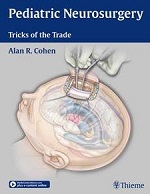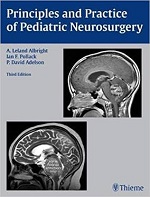ABPNS Certification
The process of ABPNS certification has been refined with the further integration of the ABPNS and ABNS. Currently, pediatric neurosurgeons who meet criteria for certification or re-certification will receive a RFPD or subspecialty credential in Pediatric Neurosurgery. These changes apply to all North American applicants, but affect applicants differently depending on the status and timing of their ABNS or RCPS(C) certification. The basic components include:
- Completion of the Pediatric written examination
- Submission of a practice caselog that meets pediatric case log minimums/criteria
- Completion of a pediatric focused oral examination
Process for those on the ABNS track who have just completed their fellowship:
- Pediatric RFPD written examination: Application for the Pediatric RFPD written examination is now available to all neurosurgeons currently completing (or who have previously completed) an ACPNF-accredited fellowship. Applicants are encouraged to take the exam in June at the end of their fellowship year. Applicants should plan to take the exam no later than within one year of completing the fellowship.
- ABNS application and case log: Applicants should initiate application for ABNS certification, and begin the caselog submission process using the ABNS caselog data system called POST. Those tracking toward a pediatric RFPD and on track to becoming ABNS certified must select pediatric track and take the pediatric focused ABNS oral examination.
- If the applicant's case log does not meet the pediatric minimums (see ABNS Case log Requirements below), but the intention is to eventually pursue the pediatric RFPD, the applicant should take the ABNS pediatric focused oral examination anyway with the intent to submit another case log to the ABPNS within 5 years time. (See ABPNS caselog requirements below).
Pediatric focused practice credential for those on the RCPSC track:
Applicants certified by the Royal College who have completed an ACPNF-accredited fellowship are eligible for an ABPNS-RCPSC dual subspecialty credential. There are three steps to this process:
- Pediatric RFPD written examination: Applicants should apply for and pass the Pediatric RFPD written examination (offered remotely at a testing center).
- Case log: Approximately 2-3 years after fellowship applicants should begin collecting cases for the oral examination, then submit a caselog that meets criteria (See ABPNS case log requirements below).
- Oral examination: Once the above criteria are met, the applicant should apply for the ABPNS-sponsored oral examination. The exam has two parts: 1) pediatric neurosurgery cases and 2) review of applicant’s own cases.
ABPNS examination application for the subsequent joint pathway
ABPNS spreadsheet for case data with outcome fields
Pediatric RFPD – process for those seeking the pediatric RFPD via the Subsequent Joint Pathway:
This application is for those who completed an ACPNF-accredited pediatric neurosurgery fellowship – AND –received ABNS certification but did not take the ABNS pediatric focused oral examination. The entire subsequent joint certification process must be completed within 10 years of completion of the approved pediatric neurosurgery fellowship. Failing to complete the process within that time frame will require the candidate to seek joint certification via the “alternate pathway” criteria.
- ABPNS caselog: The applicant should submit a current case log that meets the ABPNS Case log Requirements (below)
- Oral examination: The applicant should apply for the ABPNS-sponsored oral examination. The exam has 2 parts: 1) pediatric neurosurgery cases and 2) review of applicant’s own cases.
ABNS Caselog Requirements (Submitted to the ABNS through POST):
- 125 consecutive cases.
- All cases must have been performed over a period of 18 months or less.
- All cases must have 3 months follow-up.
- Follow-up may be performed outside the 18 month window.
- “Staged procedures” will count separately toward the total of 125
- Complication management/revision (“take back” surgery) is considered an extension of the original operation, they will not be counted towards the 125 total
- Clinical data must be from at least 100 unique patient encounters
- No case can be older than 24 months from the date of submission
- Cases during residency or fellowship should not be included
- 95 of the 125 must be cases performed on patients 21 years or younger.
ABPNS Caselog Requirements (Submitted directly to the ABPNS):
- 65 consecutive cases on patients 21 years or younger
- At least 85 total cases (pediatric and adult)
- All cases must have been performed over a period of 12 months or less.
- All cases must have 3 months follow-up.
- Follow-up may be performed outside the 12-month window.
- “Staged procedures” will count separately toward the total of 125
- Complication management/revision (“take back” surgery) is considered an extension of the original operation, they will not be counted towards the 65 total
- No case can be older than 18 months from the date of submission
- Cases during residency or fellowship should not be included
Applicants seeking the Pediatric RFPD credential are required to enter 95 major cases aged 21 or under (in an 18-month period) into ABNS POST, then sit for the pediatric focused oral ABNS exam. ABNS POST will continually track the number of pediatric cases the applicant enters into the system and will not allow him/her to submit the cases if a minimum number of 95 is not reached. This is a fail-safe mechanism to prevent the applicant from submitting the case log before it is complete. Once the ABNS POST case log has been submitted, no further changes can be made.
If the applicant knows ahead of time (or discovers during ABNS POST case entry) that he/she does not yet have the required 95 pediatric cases he/she should contact either the ABNS or ABPNS administrators so that they can remove the submission requirement. At that point, the applicant should enter or resume entering the 125 consecutive cases required for initial certification, then take the ABNS pediatric focused oral exam. If, in the following 5 years, the applicant’s practice reaches a pediatric case number that satisfies the RFPD requirements (and he/she has already taken the pediatric focused ABNS oral exam), he/she may send a new qualifying case log directly to the ABPNS to receive the RFPD (case log requirements listed below).
Note: If the applicant applied for a delayed RFPD in this manner, but has previously taken the “general” instead of the “pediatric-focused” oral ABNS exam, he/she will be asked to sit for the ABPNS-administered oral exam as detailed under the “Subsequent Joint Pathway”.
ABPNS examination application for the subsequent joint pathway
The recommended study material for the Pediatric RFPD written exam is below (not intended to be exhaustive):

Alan Cohen's Tricks of the Trade

Albright's Principles and Practice of Pediatric Neurosurgery
Pediatric RFPD – process for those seeking the Pediatric RFPD or pediatric focused practice credential certification via the Alternate Pathway (for those who have not completed a post-residency ACPNF-accredited fellowship):
For applicants who have not completed a post-residency ACPNF-accredited fellowship, the ABPNS Board of Directors may, at its own discretion, offer a credential recognizing a pediatric neurosurgery practice to neurological surgeons who have been in practice for at least ten years following the completion of their residency. The link below provides the application and list of required supporting documents. This category requires submission of a surgical case log for each of the 5 years immediately prior to application, as follows:
- The case log submitted must represent all locations of the practice of the applicant at the time certification is requested.
- A minimum of 65 major pediatric operative cases in each of the five years
- A minimum of 3 months follow-up for each case occurring in the 5th (most current) year, with the most recent case being no more than 6 months from the time of application. Outcome data need to be submitted only for that most current year. Data from years 1-4 can be submitted using the ABPNS caselog spreadsheet without the data outcome columns.
Application for the alternate pathway
For submission of year 5 (most current year) :
Surgical case log with outcome fields
For submission of years 1-4 :
Surgical case log without outcome fields
After Submission of an Application:
- Applications from those following the ABNS track will be reviewed by a member of the Joint Credentials Committee of the ABNS and the ABPNS. Applications from those with RCPSC certification, Subsequent Joint Pathway, or Alternate Pathway tracks will be reviewed by the ABPNS Credentials Committee.
- Applicant will be notified by the Secretary of the ABPNS of his or her eligibility to sit for the Pediatric RFPD written examination.
- This examination is given once per year, in June. Deadline to apply each year is April 1st.
- The ABPNS Exam Committee Chairman will notify all examinees of results.
- The ABPNS Secretary will notify all examinees of the next step.
List of Examinations
- ABNS Pediatric-Focused Oral Exam: Exam given as part of the ABNS oral examination. The applicant should select the Pediatric track in order to take the pediatric focused oral exam rather than general- or spine-focused. Even if you do not have the pediatric case numbers, you can still select the pediatric track.
- ABPNS Oral Exam: Exam given by the ABPNS to those seeking a subspecialty credential in pediatric neurological surgery but have not taken the pediatric-focused ABNS oral exam (they may have taken the general ABNS oral exam, or they might be certified by the RCPS(C))
- ABPNS Pediatric RFPD Written Exam: Exam given to all those who have completed an ACPNF-accredited fellowship and who are seeking a pediatric RFPD. If unsuccessful at passing the examination on the first attempt, the applicant must re-take the examination at the next scheduled test date. If the applicant is unable to complete the re-examination process successfully, he or she must reapply and again meet all of the requirements outlined above.
 Home Page
Home Page